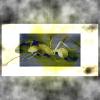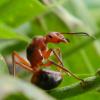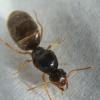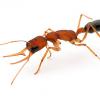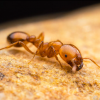IMO these were intentionally released to harm agriculture in the USA to further damage our economy.
If these spread our only defense is importing the japanese honeybee- I'm sure most of you know this already, but the european honeybee has no defense against this wasp. The JAPANESE honeybee, however, clusters on scouts and furiously buzz to cook the wasp before it can mark the beehive. These will decimate native bees too. they are bad bad news. will attack other animals too, these guys will prey on birds, mice, lizards, any kind of meat they can find. VERY bad invasive.
Really, have you not read the previous posts? These hornets will pose some danger but importing more honeybees will be even worse. They will almost certainly begin to decimate native bees via competition. And from the sound of it Japanese honey bees are rather aggressive in themselves. While European bee nests can be controlled, a bee nest capable of defending itself against predators would be adding more danger to this already dangerous idea. As for native bees, I seriously doubt it. Do you know how native bees work? Honeybees have large nests on the outside that are easy to find and track. The only other eusocial bee in NA is the bumblebee, which nest underground in areas hard to find let alone track. As for the rest of the natives, they're solitary,meaning the invasion of a nest would result in maybe 10 deaths at most if you count developing eggs, and their nest entrances are probably much too small for the hornet to even enter. there's also the fact that japanese hornets are adapted to seek out bees they already know store valuable resources. They will most likely not track down mysterious insects that they're not sure will yield any reward. Meanwhile Japanese bees would more than double the already intense competition between native bees and honeybees.

